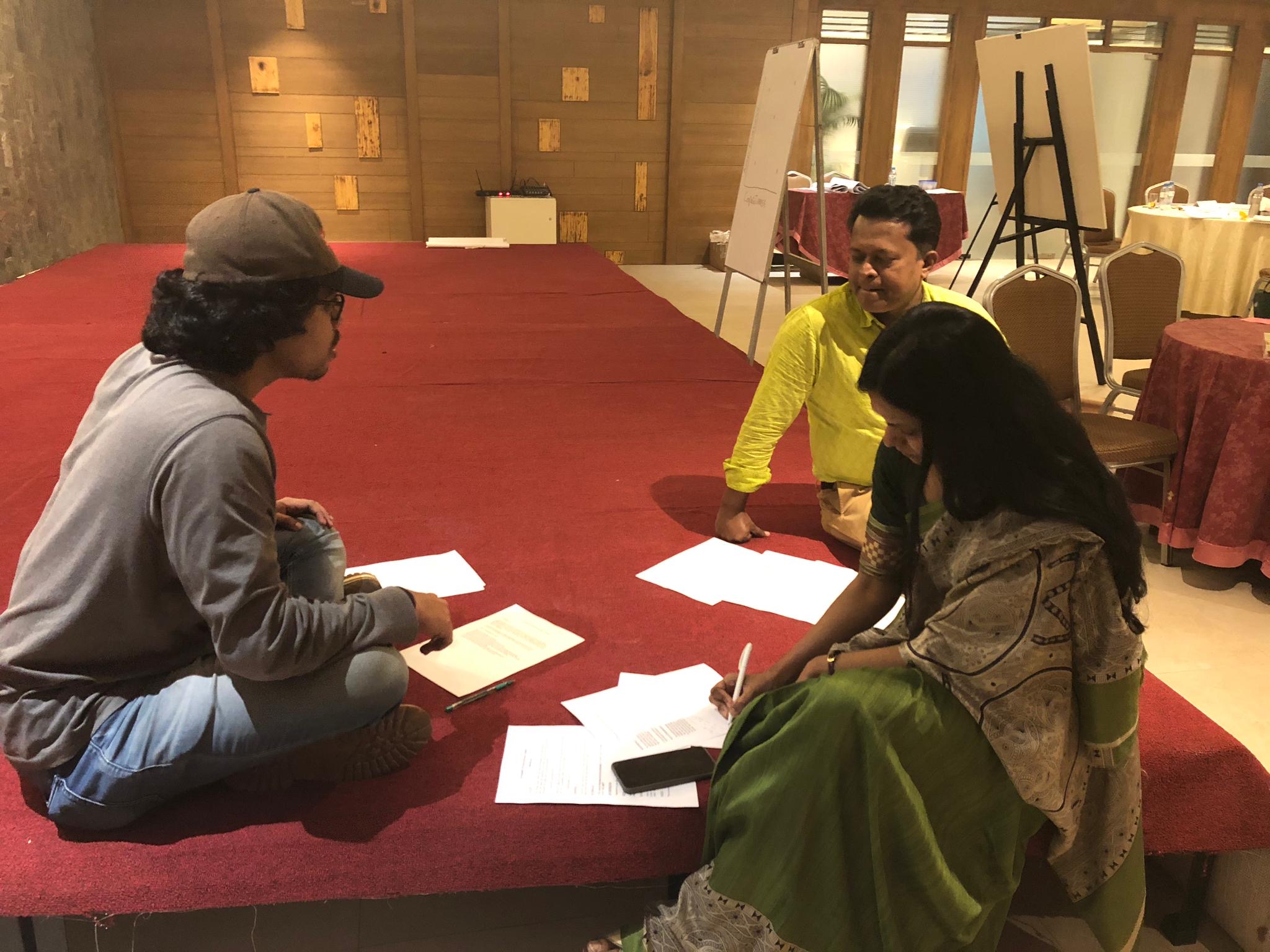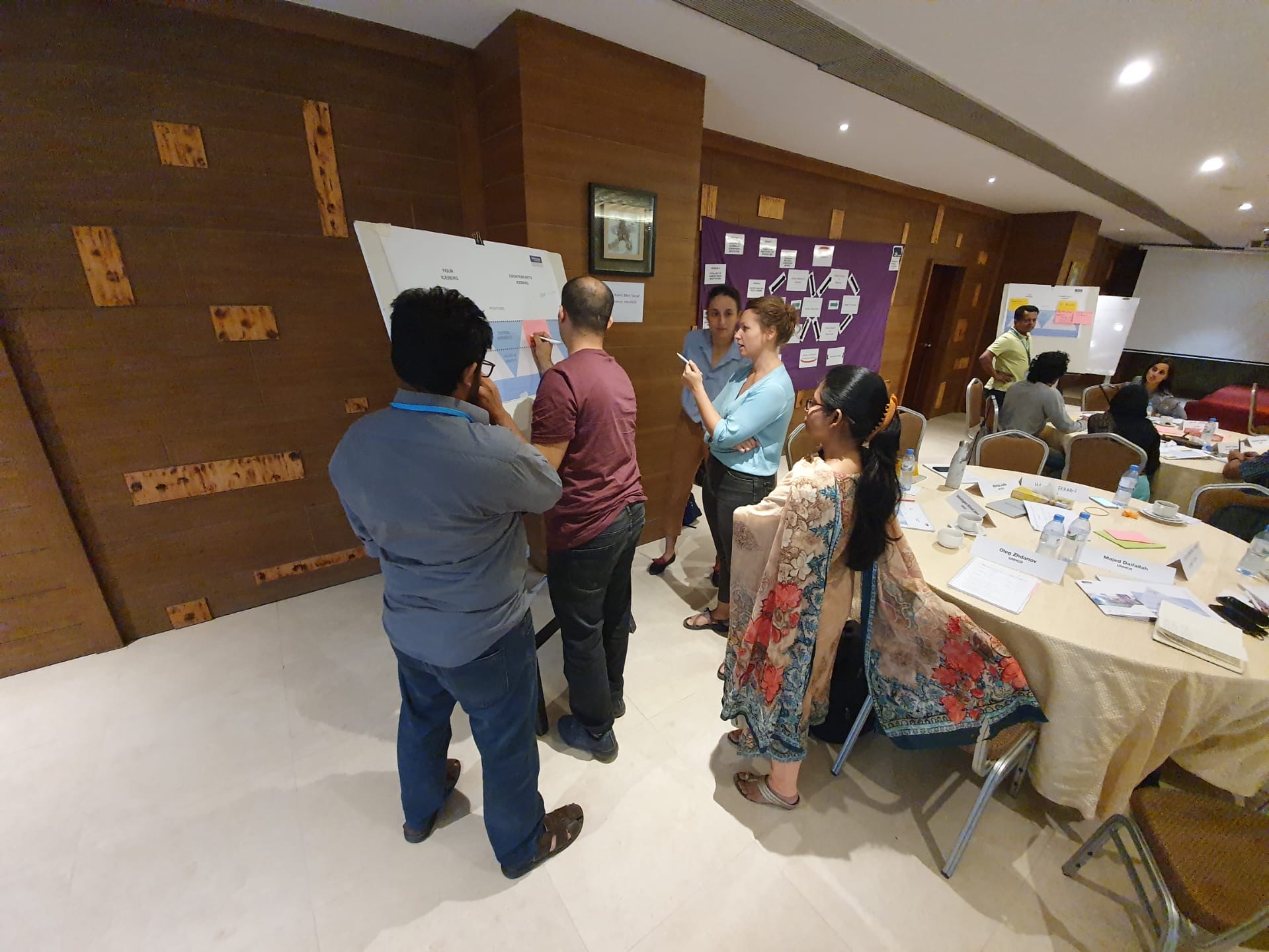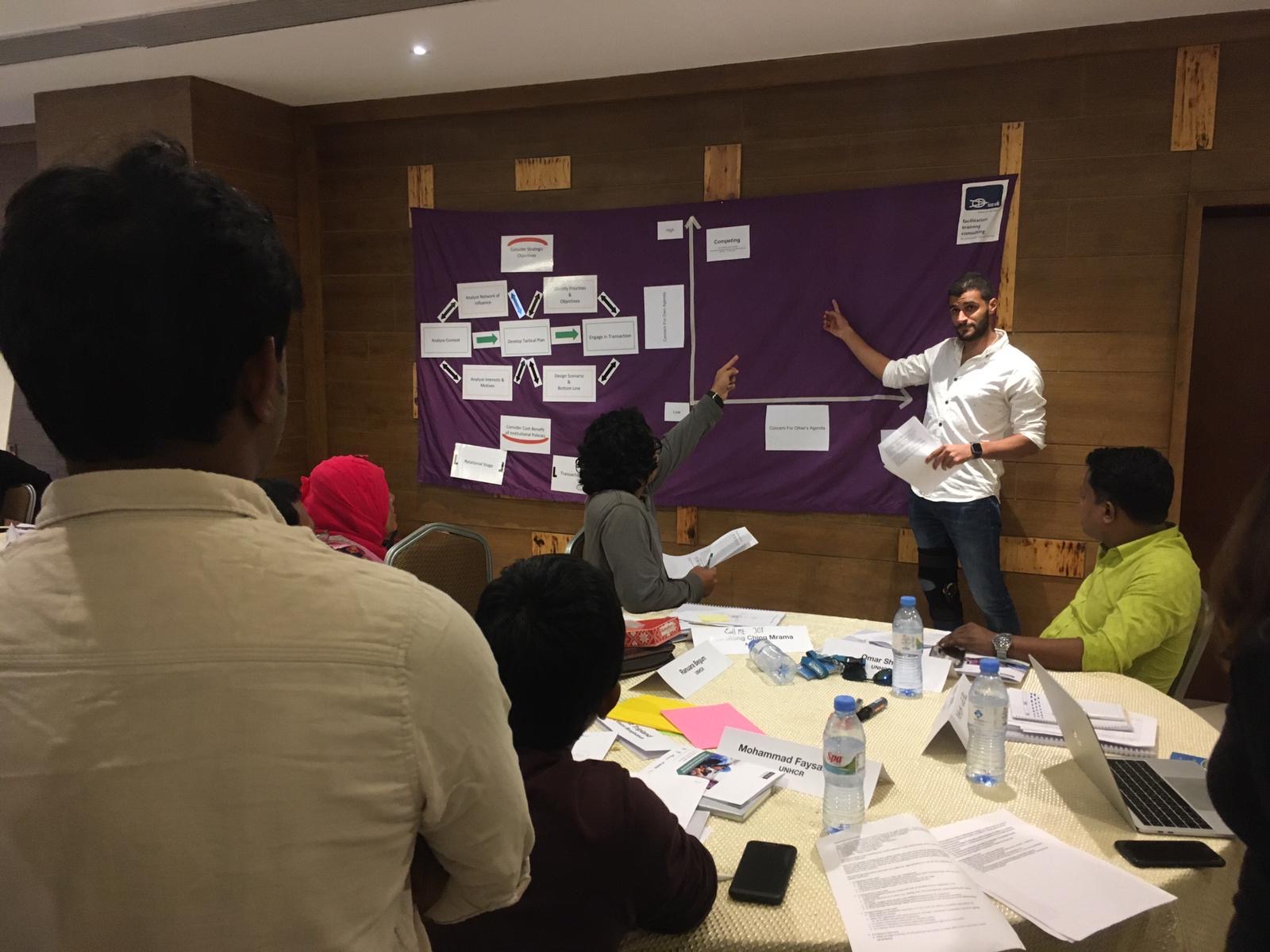
Each participant played a role in a negotiation simulation. (Photo Credit: Naïma Weibel/CCHN)
Bangladesh is hosting over 900,000 Rohingya refugees in refugee camps in Cox’s Bazar. The CCHN has worked to support the competency development of humanitarian professionals working in this context since 2018. Following two multi-agency peer workshops, partner agencies invited us to take a deeper look into some of the challenges facing humanitarians in refugee camps in Bangladesh.
With the support of UNHCR, the CCHN came back to Cox’s Bazar and hosted a Specialized Session from 4-8 November 2019. “We took the opportunity to not only organize a Specialized Session, but also a Peer Workshop,” said Naima Weibel, CCHN Negotiation Support Specialist for Asia. “This allowed national staff who did not attend before, and international staff who were new to the context to also take part in the Specialized Session, which was held back-to-back with the Peer Workshop.”
Apart from UN agencies such as UNHCR and IOM, the workshops were attended by participants from the other Strategic Partners, namely ICRC and MSF as well as INGOs and local NGOs such as ACTED, World Vision, DRC, ISCG and Bangladesh Rohingya Response.

Exploring the Common Shared Space conducive to a negotiation. (Photo Credit: Naïma Weibel/CCHN)
Competency development on humanitarian negotiation
The CCHN has developed a unique learning method based on peer exchanges and current practices from professionals in the field.
“It was an amazing workshop. No PowerPoint presentation, completely adult learning and sharing experience with other colleagues from different organizations,” expressed Mohammad Abu Taher, MSF Project Coordinator Support.
Md. Humaun Kabir, ACTED Senior Site Officer added, “Basically, it’s the first workshop of my career on humanitarian negotiation. I found the design of the negotiation process and set up the bottom line excellent.”
When asked about the workshop content, several participants expressed a strong interest in the Negotiation Iceberg session.
“I really liked the Negotiation Iceberg session where I learned that the things appearing in front of us are not that straightforward. There are many hidden issues to explore and consider for planning,” explained Kajal Ahmed, ISCG National Coordination Officer.
Similar to Ahmed, Majed Daifallah, UNHCR Assistant Field Officer added, “the Negotiation Iceberg helps us find a way to start verifying assumptions about the interests and how it affects the counterpart.”

Knowing your conflict-handling style by taking the Thomas–Kilmann Conflict Style Test (Photo Credit: Naïma Weibel/CCHN)
Maintaining a Humanitarian Space in Refugee Camps in Cox’s Bazar
Several Peer Workshop participants stayed on for the Specialized Session. In addition, other field practitioners who had previously done a CCHN Peer Workshop also joined. This setup ensured that all participants were already familiar with the CCHN’s methodology and knew how to apply it to the refugee context in Cox’s Bazar.
“As all context-specific workshops, the Specialized Session was really centered on the specific issues related to Cox’s Bazar and the Bangladesh refugee crisis more broadly, allowing the direct application of tools to live problems”, said Weibel.
“The content of the discussions was rich and informative for all. Given the lack of coordination and information sharing amongst agencies in this context, it was enriching for them to be able to freely and informally exchange on common challenges.”
The content of the Specialized Session also informed a CCHN listening tour report. Based on a series of interviews, this report by Ashley Clements, an independent consultant and researcher, outlined key negotiation challenges and dilemmas in Cox’s Bazar. Clements was present at the Specialized Session as a facilitator.
As a follow-up to the specialized session, participants are committed to test and run a peer circle over a one-year period. As such, from January 2020 the same group of participants will self-organize monthly meetings to further discuss the most pressing challenges and dilemmas they face and seek to support each other by sharing their experiences.
